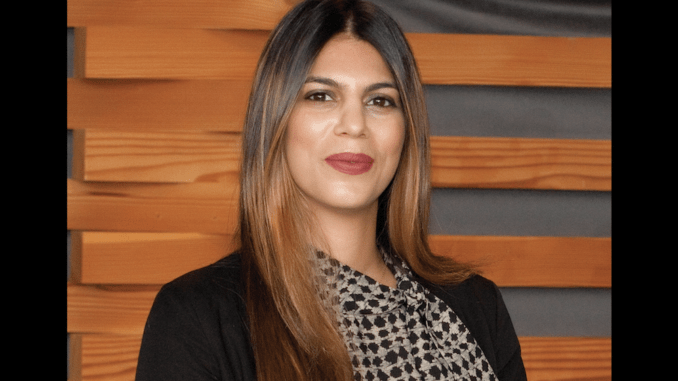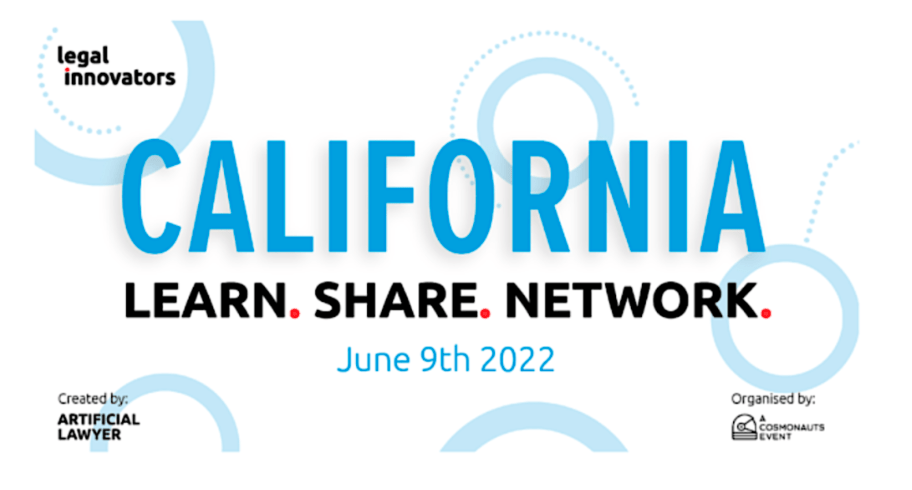
Orrick is a pioneering law firm that has a well-developed innovation strategy. It invests in startups, builds its own tools, and has even published a legal tech directory. Artificial Lawyer spoke to Vedika Mehera, the firm’s Innovation Advisor, to learn more about Orrick’s approach.
What does her role entail? Mehera said that her time is split between internally-facing work and client consulting, where she is providing a ‘value add’ that the firm does not charge for.
‘For example, we are helping the GCs, or the legal ops people, with operations challenges. We share our knowledge and the solutions we have built,’ she explained.
In fact, as is increasingly the case now for a growing number of firms, building solutions to help not just the lawyers at the firm, but the clients, is something that Orrick focuses on.
Mehera gave the example of a high-volume litigation tool they developed internally called CaseStream that triages incoming claims for their clients, helps manage conflicts, assigns a team to work on the matters, and gives Business Intelligence (BI) data as the cases come through.
This BI data covers things such as the type of claims and where they were initiated, which in turn can help Orrick to advise the company on broader strategies to reduce those claims. Collecting more data also helps Orrick to assign the best resourcing model to the work and allows them to find the right ‘price point and meet a budget’, and generally drive efficiency for the firm and the client.
Mehera noted: ‘If we did this traditionally we would lose a lot of money on that [work].’
She added that as they do work for one client in this way that model can then be adapted for other clients with similar needs, which in turn drives more efficiency.
More broadly Mehera noted the importance of systematising high frequency workflows. She gave the example of repeated regulatory questions that if done in an ad hoc way would be slow for the client and eat up time for the firm. By bringing in some automation to handle queries they can quickly send questions to the right teams and get answers back to the clients.
‘We save lots of time with this. Before it was a call with client and then there would be lots of different calls internally [to find out who could help]. Now it’s all done automatically. It’s very quick,’ she noted.
It’s a win-win. The client gets the responses faster. The law firm cuts through a time-consuming process that doesn’t generate a lot of fees, but needs to be completed in order to serve the clients.
And there is also Orrick Analytics, which ‘is like our ALSP arm’ and can work ‘on different rates not used in the main law firm’, she explained.
They can handle things such as building data models and on the human side they can make use of the firm’s Global Operations & Innovation Center in West Virginia, which can handle large-scale matters both for eDiscovery and transactions more economically.
Then comes Orrick Labs, which ‘is our skunk works’ and where the firm builds those tools that it cannot buy from vendors. For example, Joinder, a system of record tool, was built there and then this year sold to Bright Flag.
The firm has also built ‘The Observatory’, a very well-developed legal tech directory that is free for all to use.
And they invest in legal tech companies via a dedicated fund. So far they’ve invested in legal tech onboarding platform Reynen Court, the Priori Legal marketplace, and legal education site AltaClaro.
‘The goal is to take a stake in upcoming tech that services us and our clients,’ she explained, and noted that Orrick is never the main investor and that they are aiming for around one investment per year.
In short, Orrick has really committed to this field. But, how do they stay up-to-date? How does the firm adapt to ever-evolving needs and the appearance of new ideas?
Mehera noted that about two years ago they formalised the way internal innovation worked with a centralised clearing house for ideas.
‘We do a quick scoping, we look at what product may be needed, how much time it will take, explore what the goal is, and how we will measure [outcomes].
‘We have a robust model now and have process design experts so we can process map things and make sure we are meeting KPIs and that we can show that we have reached what we set out to do [with the solution],’ she explained.
That said, she stressed that the firm does not ‘want to recreate the wheel and we will licence tech’ if it’s there and it fits the need.
Artificial Lawyer then asked about standardisation, is that something on the firm’s radar?
Mehera said that as they see things, Reynen Court is a type of standardisation as it allows a more uniform approach to onboarding tech products.
‘We invested in Reynen Court because one of the goals there is to standardise the process of buying technology, which is such a pain point for all firms, e.g. risk, security, and data issues. There is so much to get through,’ she noted.
And oneNDA and other contract standardisation projects? Mehera said that they definitely support this approach for things like NDAs, although this is harder to do for more complex agreements.
She also reiterated the point about systematising and automating workflows, which is ultimately a form of standardisation as well, as you are building a standard approach to solving a problem.
Last thing, what does she see on the horizon? She noted that some clients are increasingly interested in things like smart contracts and blockchain, and the firm is currently looking at a number of AI-driven drafting and red-lining tools – although the jury is out so far on the tools they have seen.
Two other areas they are focused on include expanding the use of workflow automation and also digging deeper into knowledge management, of which she noted: ‘KM is still not solved.’
Mehera added that ultimately the goal was to stay focused on ‘the basics’ – both internally and in relation to client needs – and that although they have come a long way just understanding and then improving legal processes remains a core goal.
‘There is so much to do,’ she concluded.
It looks like Orrick is certainly doing plenty already and making progress.
—
If you found this subject interesting, come along to Legal Innovators California on June 9, in San Francisco. Orrick’s Vedika Mehera and many other innovators will be speaking at the all-day in-person event.
Ticket information can be found here.

